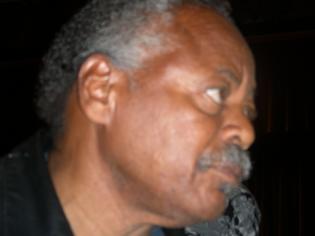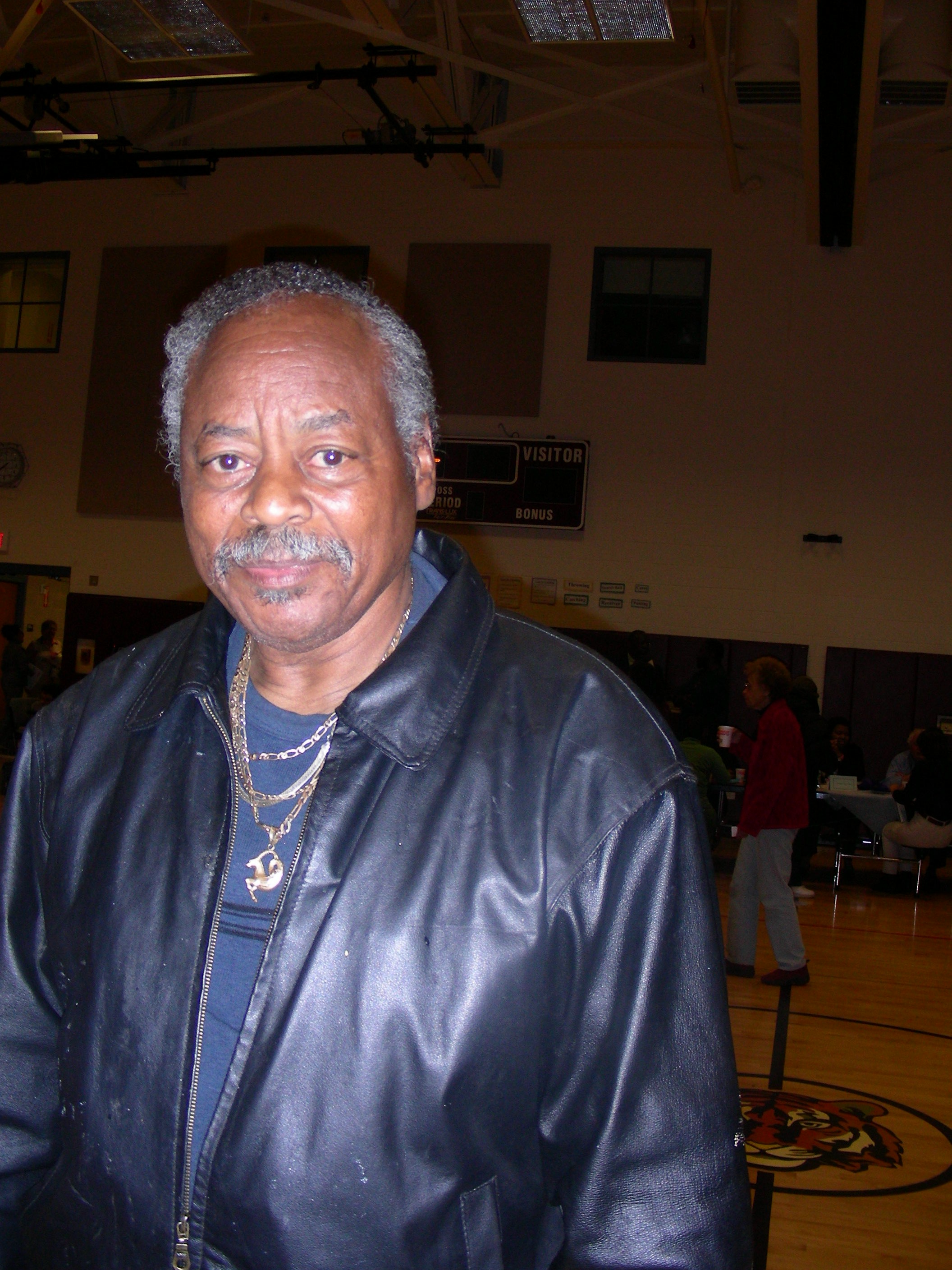 Sure, Kelly Moye told the Black Panthers, go ahead and borrow my car. They didn’t tell them they were on their way to murder somebody. He didn’t tell them he was spying on them for the cops. Moye (pictured) didn’t tell anyone except his wife — until now, 37 years after New Haven’s most notorious political murder.
Sure, Kelly Moye told the Black Panthers, go ahead and borrow my car. They didn’t tell them they were on their way to murder somebody. He didn’t tell them he was spying on them for the cops. Moye (pictured) didn’t tell anyone except his wife — until now, 37 years after New Haven’s most notorious political murder.
Moye lives on Truman Street in the Hill neighborhood. He was living there back in May of 1969 when the police department paid him to attend meetings of the new Black Panther chapter in town and report back. Paranoia was rife within the black-nationalist group; members regularly accused each other of working undercover for the cops or the FBI, with good reason. But no one suspected Moye, who, unbeknownst to the Panthers, was angling to land a spot on the city police force.
Moye describes his role in the affair in a book called Murder in the Model City: The Black Panthers, Yale, and the Redemption of a Killer, which Basic Books will officially release on Monday. (Note: I coauthored the book with Douglas W. Rae.) It’s one of many secrets involving New Haveners, the FBI, Yale, and the local police contained in the book, which centers on the murder of 19 year-old Panther Alex Rackley on suspicions of being a police informant, suspicions that even the Panthers soon recognized as false.
The revelations add new insights into a case that led to mass protests, including one that shut down New Haven and Yale on Mayday weekend 1970; and to a trial, of Panther leaders Bobby Seale and Ericka Huggins, that forced the question of whether black revolutionaries could receive a fair hearing in American courtrooms.
Hoping To Wear Blue
Kelly Moye drove a truck for Fair Haven’s General Wines and Liquors in the 1960s. One day in 1964 a cop stopped him for a traffic violation. The cop’s name was Nick Pastore. They struck up a friendship. Moye would deliver liquor to Pastore’s home. The two would chat in each other’s homes. Moye says Pastore told him he’d make a good cop. Moye said he was interested. Pastore promised to help him.
Pastore eventually became head of the department’s intelligence division. At the time, New Haven had perhaps the most active “red squad” in the country; four machines operated around the clock at police headquarters illegally taping the phone conversations of, among others, political radicals, liberals, suspected bookies. Pastore developed a network of informants who told him about organized crime activity, neighborhood crime, and Black Panther organizing. He first enlisted Moye to report on drug-dealing in the Hill. Then he asked Moye to attend meetings of the local Panther chapter, which was headquartered in the apartment of activist Warren Kimbro in the then-new Ethan Gardens housing complex on Orchard Street.
Moye said he checked with his wife before agreeing to serve as an informant. She advised against it. But he thought about it. He was approaching 30 years old. If he could eventually land a job with the cops — that sounded like a step up. He had submitted an application to the police department; it languished for years. Maybe this would help.
Plus, he’d be earning extra money in the meantime. “We’ve gotta eat,” he remembers thinking. So he said yes.
Moye liked the assignment. He insists he didn’t feel he was doing the Panthers wrong; he was merely relaying facts about the meetings to Pastore. “I had a lot of faith in the Panthers,” he says now from the comfort of his wall-mirrored living room. He especially enjoyed hanging around Ericka Huggins, the chapter leader who’d come to New Haven in 1969 to bury her husband, John Huggins, after he was killed in a shoot-out with a rival black nationalist group in California. Huggins was beautiful, Moye recalled. “Ericka was smart, very smart. She was like the Queen Bee when she went to the park. Yale students would flock around her.”
Moye became known as someone the Panthers could count on for a meal or some cash, as much as $50 at a time. He never felt he was doing anything wrong in calling Pastore after meetings to tell him details of the Panthers’ meetings and plans, Moye says; but he never felt comfortable revealing his role to the Panthers, or to anyone beyond his wife, for decades to come.
A Ride To A Swamp
The night of May 20, 1969, Moye was sitting in his living room, watching TV, when the Panthers called from Ethan Gardens. They needed a car for an errand. Would Brother Kelly lend them his?
The Panthers had been holding Alex Rackley, the 19 year-old Panther from out of town, tied up in a bed in the Ethan Gardens apartment for three days. He lay in his own feces and urine. They had tortured him, pouring pots of boiling water over his body, until he “confessed” to spying for the cops. Now the Panthers were going to take Rackley for a ride, shortly before midnight. At first someone suggested taking Warren Kimbro’s Mustang. But the cops know that car, someone else pointed out. That’s why the call went out to Brother Kelly.
Sure thing, Moye said.
Moye hung up the phone and dialed another number — Nick Pastore’s. Moye reported the request to borrow his car. Pastore advised Moye to go ahead and lend it. Pastore had a hunch something was happening on Orchard Street; he told Moye that a Panther from New York was being held there and was about to be transported. “Go over and see what is happening,” Nick said.
Within minutes, Moye showed up outside Ethan Gardens in his two-door green Buick Riviera. He was greeted by George Sams, the fierce, itinerant Panther who had come to New Haven to take charge of the local chapter and instill some “discipline.”
Sams stood by the curb waiting for Moye. When Moye emerged from the Buick, Sams stuck a gun to his head.
“I want to use your car,” Sams said.
“Hey, look,” Moye said, “you can take the car.”
Moye handed over the keys. Another Panther drove him home. No one asked why Kelly Moye was so prompt, so accommodating, because people helped the Black Panthers all the time. They pitched in for the cause the instant they were summoned. That was how a revolution worked.
Another way the revolution worked: the Panthers drove Alex Rackley to a swamp in Middletown. They shot two bullets into his body, one of them to the head. They left him for dead. Infused by informants under the FBI’s COINTELPRO effort, encouraged by FBI forgeries to suspect each other, even legitimate Panthers, of spying, fueled by their own violent rhetoric and conspiracy theories, the Panthers never knew whom to trust. They never knew quite what to do about it, either, as they planned a black-led American revolution that in the end claimed just a couple of dozen victims, most of them black.
Yet another way the revolution worked: Through Moye, and through other information, the cops had a good sense that a murder was about to take place that night. They indeed followed Moye’s car as it left New Haven toward the murder destination. Yet, the cops claimed, they “lost” the car. And they didn’t follow up until a day later, when state police came upon Alex Rackley’s body in Middlefield. The triggerman and his immediate superior that night in the swamp pleaded guilty. But the government was after bigger fish: It was trying, as one cop involved put it, to get national Panther leader Bobby Seale. It tried to get Seale the electric chair for supposedly ordering the murder, even though the state had no real evidence pinning him to the crime, and even though one of the state’s star prosecution witnesses testified that Seale had nothing to do with it.
Moye says he learned about the Rackley murder the evening after it happened — again, while watching TV in his living room. His car was impounded. The Panthers petered out as a force in New Haven, except as the intense two-year focus of a murder trial that put party leaders before a federal jury across from the Green and led to repeated protests. A jury failed to convict Bobby Seale and codefendant Ericka Huggins of any charges related to the murder.
 In 1970, the year following Alex Rackley’s murder, Kelly Moye finally got his police badge. He was hired at first to serve on the housing authority’s police force. In the 1980s, he became a full-fledged city cop. He retired in 1982.
In 1970, the year following Alex Rackley’s murder, Kelly Moye finally got his police badge. He was hired at first to serve on the housing authority’s police force. In the 1980s, he became a full-fledged city cop. He retired in 1982.
Today Moye remains on Truman Street. A beautifully rebuilt school sits proudly at the end of the road, but otherwise Truman is as rundown and crime-plagued as in the days before the Great Society promised better. As a neighborhood volunteer, Moye tries to help keep drug dealers off the block. Just as in the days when he tipped off Nick Pastore about heroin dealers moving in.
As with other participants in the momentous events of 1960, Alex Rackley’s ghost has never fled from Kelly Moye. More than 30 years later, Moye appears nervous about discussing his role. He is clearly nervous, even after all this time, about how Black Panther supporters would react.
He hesitated to tell the story when first interviewed for the Murder in the Model City book. He agreed to tell the full story only after confronted with evidence about his story and a reassurance from former Panther Warren Kimbro, who pulled the trigger in the swamp that May night, that a lot of people made mistakes back then. No one was going to be angry about it now. On the other hand, everyone, it seems, still wrestles with ghosts.






An interesting article, but one that subtly blames the police and other government agencies for the crimes of the Black Panthers.
Journalists should not act as apologists for revolutionaries. Revolutionaries and those who would repress them share much in common: a devotion to belief over compassion, a willingness to commit great crimes in the pursuit of a greater good, a loss of perspective about themselves and their own importance.
Had the Black Panthers succeeded, Rackley's murder would have been but a prelude to greater crimes made possible by the group's accretion of power.